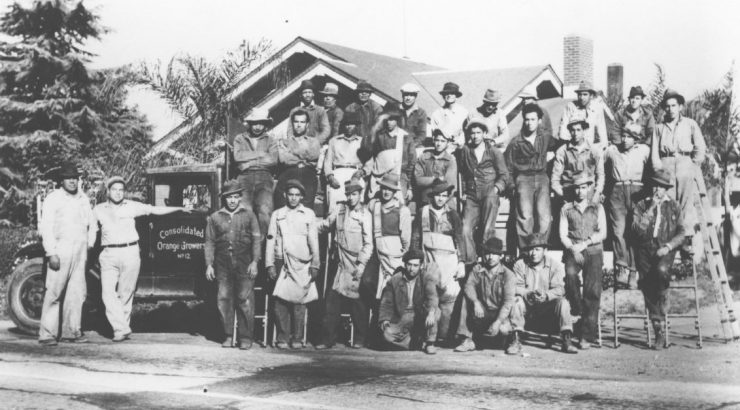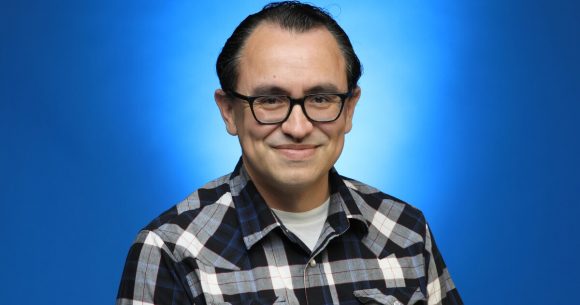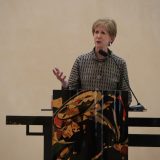
Engaging the World: Leading the Conversation on Ethnic Studies Alumnus Gustavo Arellano
May 11, 2022
Wilkinson College’s Engaging the World: Leading the Conversation on Ethnic Studies, welcomed alumnus Gustavo Arellano (’01, Film, Cinema, and Media Studies), who presented the keynote address at this year’s Education and Ethnic Studies Summit. Arellano, a columnist for the Los Angeles Times and author of Orange County: A Personal History and Taco USA: How Mexican Food Conquered America, discussed his dedication to revealing the hidden histories of Orange County.
Born to parents who immigrated from Mexico to Orange County, one of whom came to this country in the trunk of a Chevy, Arellano attended Anaheim High School, where he faced underrepresentation in the classroom and a silence around Latinx identities and histories of Latinx marginalization.
“They aren’t teaching people our history because they don’t want us to know our own history and they don’t want others to know our history, because it would dare cast us as humans, as peers,” Arellano told the audience.
During his time at Chapman, Arellano joined MEChA, or Movimiento Estudiantil Chicano de Aztlán (Chicano Student Movement of Aztlán) and began working with communities in Orange County to increase awareness of Latinx presence and history.
Arellano recognized numerous changes at Chapman University since his studies, such as the growing body of interdisciplinary minors, including Africana Studies, Asian Studies, Latinx and Latin American Studies, and Ethnic Studies, and the establishment of the Cross-Cultural Center, reflective of Chapman’s commitment to diversity, equity, inclusion, and ethnic studies.
“What we have here is amazing, but it didn’t come out of nowhere,” said Arellano, “there are pioneers you don’t even know about. When I became a reporter, I decided I wanted to know who those pioneers were.” Chapman’s MEChA chapter, for instance, pursued the designation of a multicultural center on campus.
Arellano first dipped a toe into the world of Ethnic Studies when he began researching hate groups as a student at Orange Coast College. After discovering the history of Ku Klux Klan influence over Anaheim’s City Council in the 1920s, Arellano was inspired to pursue the untold histories of racism and white supremacy rooted in Orange County. “I wanted to tell these stories,” said Arellano, “that was the first chisel against this wall that I had between myself and getting into ethnic studies, or getting into the world of the truth… I started delving into history, what you would call Ethnic Studies. To me, it was just history.”
With these lessons in mind, Arellano began a career in journalism as an investigative reporter for OC Weekly, where he examined “hidden history after hidden history” in Orange County, viewing the Citrus War of 1936 as “fascism in practice” against Latinx workers striking for better wages and working conditions. Arellano started a column, what he calls the “crowning achievement” of his journalistic career, to expose local leaders and prominent figureheads in Orange County as members of the Ku Klux Klan.
“As I was telling these stories, more and more people got angry, but more and more people got inspired,” said Arellano, noting the changes across Orange County that led to the spread of ethnic studies in high schools and in higher education.
Gustavo Arellano urged all of those studying or interested in Ethnic Studies and the pursuit of truth to “stay the course, because it’s going to spread. Know that it’s a big fight. As long as you stick to the facts, go for it.”
The full fall slate of programming for Wilkinson College’s 2022 Engaging the World: Leading the Conversation on Ethnic Studies series will draw on the arts, humanities, and social sciences to analyze the experiences of racial and ethnic groups in the U.S. and tell a more inclusive American story.
(Pictured in header: The 1936 Citrus Strike in Orange County.)


